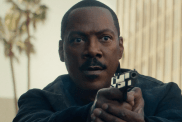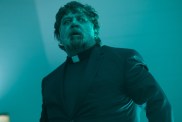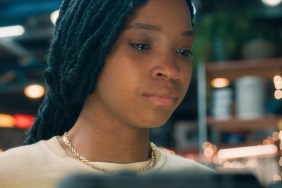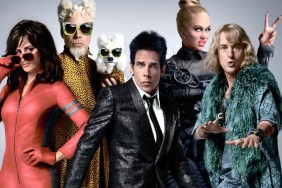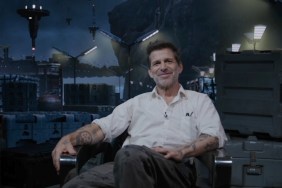Jason Reitman is one of those filmmakers who’s been having a wildly fascinating career, directing six feature films in less than ten years with four Oscar nominations under his belt to show for it, all before the age of 40.
Besides adapting a couple of seemingly unadaptable books into clever and witty films, he also helped draw attention to a young upcoming screenwriter named Diablo Cody, pairing with her for two very timely films that commented on the world around us. With these things, Reitman was long ago able to move out from under the long and pervasive shadow of his veteran filmmaking father.
Which brings us to his sixth feature Men, Women & Children, an adaptation of Chad Kultgen’s novel that features a true ensemble cast of older and young actors depicting a small town California community and how romance and relationships are affected by the internet, smartphones and computers.
The characters range from Ansel Elgort’s MMORPG-obsessed star high school quarterback to Jennifer Garner’s overly obsessive internet-fearing mother whose daughter (Kailyn Dever) is finding love for the first time (with Elgort’s character). Adam Sandler and Rosemarie DeWitt are a married couple whose lives have hit a rut with them both finding more excitement on the internet, while Judy Greer tries to reinvigorate her own failed acting career through her over-exposed daughter (Olivia Crocicchia). (You can read our review of the movie here to learn more.)
Last week, ComingSoon.net got on the phone with Reitman for our sixth or seventh time interviewing him, mostly to talk about the new movie and how its message seems to be (maybe purposefully?) misunderstood by a small percentage of critics. As is normally the case, we probably could have talked to him longer, because there’s always more to talk to him about as he continues to create a fairly diverse filmography in such a short space of time. (We also talked briefly about his “muse” J.K. Simmons and producing Damien Chazelle’s new movie, the award-winning Whiplash, which he takes very little credit for.)
ComingSoon.net: Am I your first interview of the day?
Jason Reitman: You’re my fourth or fifth.
CS: Oh, good. So you’re all warmed up.
Reitman: (chuckles) I’m all warmed up or all used up. We’ll see.
ComingSoon.net: I’m always kind of interested in the adaptation process, since I talk to a lot of filmmakers and screenwriters and author. This is your fourth adaptation, and I know you have more on the way, so what is it about a book that makes you want to make it into a movie? Making a movie is a long and involved process, especially when you’re adapting it as well.
Reitman: Yeah, I mean, it’s interesting. Any time you choose to do a movie, you know that, “All right, I’m only going to make so many of these in my life, and each one is going to take up years of part time, and at least a year, year and a half of full time of my life. It’s going to destroy relationships and kill friendships, so what am I really ready to make the sacrifice for? On this book, I’d never really seen anyone portray intimacy and romance in the relationships between parents and children as accurately in the modern age as Chad did in that book. What happened was that… I’m sure you’ve had many filmmakers telling you this… but you get this feeling. You’re just reading it, and immediately, the movie is just coming to life, literally as you’re reading it. That was the case with this book.
CS: Last month, I spoke to three author-turned-screenwriters who adapted their own book. It seems that if you’re spending all this time writing a book, why would you want to spend more time adapting it? They didn’t actually direct the movies themselves, but do you feel like a book generally needs another viewpoint or perspective in the writing process to translate it to film?
Reitman: I don’t know. I mean, there seems to be authors who are capable of adapting their own work. I haven’t seen “Gone Girl” yet, but you know, all the word is that it’s fantastic and that she (Gillian Flynn) certainly did a great adaptation of her own book. At the same time, sometimes, an author said everything they needed to say in the book form, and at that point, it’s the filmmakers moment. It depends on why the movie’s getting made, frankly. Sometimes, the goal is simply to make a movie version of the book. Sometimes, the filmmaker is trying to say something specific and the book is just a catalyst, the book is a jumping off point and provides a dialogue, characters and scenes to say something completely different.

CS: Was that the case with this one? Do you feel it connected with something you wanted to explore anyway and kind of had those elements in it?
Reitman: I feel as though the book and the movie feel very similar in tone, style, and approach. I’m probably the last person that should judge, just because I made the movie, but for me, they feel very similar. The book has much more detail and obviously, can get into much more detail when we get to sexuality and things, but I think the approach is similar.
CS: Did you work with Erin Wilson directly on this or did she do her own version and you came in afterwards? How was that collaboration? Also, with Chad as well, because I know you often have authors involved when you’re adapting stuff.
Reitman: This was really fun because I’m actually really good friends with Erin and Chad. So I had read the book while it was still in galleys and Chad and I had an ongoing relationship, and we knew, okay, we’re going to something together, probably this book. Then, Erin and I have known each other since we made this movie “Chloe” that Atom Egoyan directed. She and I had always wanted to do something together. We have a similar sensibility and neither of us is a prude. I ran into her at Sundance of all places. I literally ran into her at the Marriott, and we were walking out of our hotel room, said “hi,” and it just kind of struck me as like, “Oh, why haven’t we talked about this book that you would love?” She read it, loved it. That was January and by March, we were writing together, and really writing together. That’s a first for me, to be just divvying up the scenes, talking every day, and it was wonderful. I mean, again, the book is such a great template and we knew exactly how we wanted to do this thing. It worked great.
CS: You mentioned earlier about how much time you have to put into make a movie. I’m surprised that other than the two movies with Diablo, you haven’t just found a script by someone else that you wanted to direct.
Reitman: There were a few times where there were things I wanted to direct, but didn’t get the job. I really wanted to direct “Charlie Wilson’s War,” but you know, I wouldn’t exactly fight Mike Nichols to do it. (Laughs) Let’s see. “Lars and the Real Girl” was a script I really liked. “The Descendants” script I really loved. So there have certainly been screenplays that I’ve loved and just not gotten the job.
CS: For something like this, you’ve had pretty large casts before, but in something like “Up in the Air,” even though it was mainly three characters, you had a lot of roles. For this one, there really isn’t a lead and it’s more of an ensemble. There wasn’t one point of view, rather being a third person overseeing things. Was it harder to cast something like this, especially finding so many younger actors who have to really step up to some of the veterans?
Reitman: I don’t know. This may sound misguided, but I find it way more fun. I think it’s really exciting to start looking for all the young actors who were going to play these roles, and to start filling out the cast and seeing what their chemistry is going to be. I mean, you run into snags, and there was a good moment there where I didn’t know who was going to play the role of that Ansel Elgort ended up playing, and that was terrifying. Who is going to do this? You go through a moment of thinking, “We’re never going to find the right person, we’re going to have to settle.” Then this magic happens and you find this young actor, and then it gets really exciting again.
CS: I first met Ansel on the set of “Carrie” in Toronto, and I had no idea where his career was going in terms of doing big movies like “Divergent” and “Fault in Our Stars,” but he’s a really good actor.
Reitman: After making the movie, all of a sudden, Ansel couldn’t even step out of his hotel room.
CS: I also want to ask about the use of narration, which you’ve done before in other movies. This one, you have Emma Thompson. In “Labor Day,” you eventually find out who the narrator is, but for this, the narrator is some omni-present being.
Reitman: I’ve always imagined that Emma Thompson is almost the voice of Voyager looking back at humanity with this kind of fossil eye, almost trying to figure us out. I wanted insight into the brains of the characters and I wanted there to be something kind of cold and non-judgmental. It’s so easy to judge human vulnerability. There was something that made her voice kind of perfect for it. You did not judge these people and you found humor in their actions.

CS: Hearing Emma read the names of porn sites alone is worth the price of admission.
Reitman: (Laughs) It’s always a funny moment when I watch a screening of this movie and the word “Bangbus” comes up, and there’s this combination of people who know what it is and acknowledge it, know what it is and don’t acknowledge it, and the people who really have no idea what the hell the “Bangbus” is.
CS: I didn’t know what Ashley Madison was before I saw this movie, and then all of a sudden I started seeing it mentioned everywhere.
Reitman: I’m always surprised that people don’t know Ashley Madison. I feel like they advertise so much.
CS: I literally thought it was something you made up for the movie, so when I started seeing advertisements for it, I was like, “Oh, this is a real thing.”
Reitman: (Laughs)
CS: You were pretty active on Twitter a few years ago, but you’ve toned that down a little. Were you just burnt by the experience? What are your own feelings on the internet these days? A lot of people will see this movie and immediately think the message is that “the internet is bad.” I didn’t get that at all.
Reitman: I know. It’s really strange. I had no plans on making an internet movie. It’s just fascinating how many questions I end up answering with the internet, when I wanted to make a movie about how people interact. The truth is, 50 percent of our day is spent looking at a damn phone, so if you’re going to portray people in an honest way these days, you have to just show them sitting there looking at their phones, looking at their screens because that’s what they’re doing. That’s how we interact and it’s so deeply embedded into our romantic lives. The internet is capable of incredible things. You know, you can credit Arab Spring and Ferguson and on a daily basis, people are falling in love on Match.com and reacquainting with lost loved ones and have a knowledge base that’s changing. At the same time, we get lost in these kind of self-confidence cajoles online, and we don’t understand. I think that’s the heart of it. We’ll look back decades from now and see that we were just kinda wandering around in the dark at this point.
CS: Who knows where we’ll be decades from now, if it’s going to get worse or people will finally realize that’s the case. I’ve seen the movie twice now and I guess I’m sort of in the minority, but I didn’t get what people are saying about it being all about the internet being bad. What you were just saying is exactly what I got out of the movie. There are a lot of smarter people out there than me writing and doing film criticism, so I was surprised by that.
Reitman: Well, I think you’re pretty damn thoughtful, but I don’t quite get it. I don’t know why people are saying that either, but look, there is some instinct where people get their backs up about it. I don’t know. I don’t quite know. I know why I made the movie so?
CS: I think the message might have just hit too close to home, because you just don’t want to admit, “Yeah, that’s us. We’re self-involved people looking at our phone computers all day.” I look at my computer and on the internet 90 percent of the day so I’ll gladly admit that I’m there.
Reitman: I think that’s normal, by the way. I don’t think that’s abnormal. That’s how our lives function now.
CS: “Juno” had a memorable soundtrack for what it was, and you’ve done some great stuff with Rolfe Kent. Who is Bibio? And how did you end up working with him or her or them?
Reitman: Bibio’s a guy out in England. I heard him for the first time–this is so funny–I heard him in yoga class, and I heard this song and I went, “That’s really good.” I asked the yoga teacher, I said, “Who is that?” She said, “Oh, it’s Bibio.” (laughs) I looked him up. I really loved his music. I reached out to him. I said, “Look, I’m temping a lot of my movie with your music. I’d love you to write some original music for this film.” It became a great collaboration and he’s a really cool electronic artist with a vast career in a very short time. He works in a lot of different genres. If you go online, there’s a lot of cool stuff of his. I was looking to the music for the same reason I was looking to Emma Thompson in that I wanted a music that propels without giving us judgment. There’s something about his music that percolates. It feels like the brain clicking, but doesn’t judge what the people are doing on the screen.

CS: Randall Poster has become a go-to music supervisor, but when you came up with “She’s Gone” by Hall & Oates, it seems like a brilliant choice. I wonder if David Fincher is kicking himself for not getting that song to use in “Gone Girl.”
Reitman: That’s funny.
CS: I know you’ve worked with Randall Poster before, but do you have ideas for songs like that and the Donna Summers cover while you’re writing it?
Reitman: What I do is I’ve got a crazy iTunes library that I’m always adding to. I just sit in the editing room with Dana, my editor, with my laptop connected to the Avid, and I just would replay the scene over and over and I’d just start playing stuff. Early in the writing process, I’ll create an iTunes folder for the movie. I have iTunes folders for movies, just like the ideas I have once I’m writing. I just slowly fill them, and by the time I get around to editing something like “Men, Women, & Children,” there’ll be a couple of hundred songs in there, knowing that I’ll end up using five to 10 of them.
CS: Every time we speak, you already have something else in the pipeline, either shooting or ready to start production. You mentioned “The Descendants” earlier. I know you were kind of looking at Kaui Hemmings’ new book. Is that something you’re working on next?
Reitman: I’ve already finished shooting my “Hawkeye” movie, but nobody knows about that yet.
CS: Oh, for Marvel?
Reitman: I’m kidding. (Laughs)
CS: I’m going to edit out that you said you were kidding and I’m going to move onto the next question as if it was no big deal.
Reitman: There you go. (Laughs) I don’t even know who Hawkeye is. Who’s the first Marvel weirdass I could think of? I’m halfway through adapting a book called “The Possibilities” Kaui Hart Hemmings. She wrote “The Descendants.”
CS: You’re also producing a lot of other movies right now, “Whiplash” being one of them, which I love, and I just spoke with J.K. Simmons a couple of nights ago. I’m sort of obsessed with that movie, maybe in a bad way. Are you able to produce other things while you’re writing?
Reitman: You know, I make movies with a woman named Helen Estabrook, who I’ve been working with for a while now, and she found that script of “Whiplash” and we just fell in love with it. She really championed making that into a film. She put together the financing first to make a short film and produced the short with Damien, which was extraordinary and won Sundance. Then, in the interim, literally within a year, found the financing and produced the feature. I did little if almost nothing on that film. I did recommend J.K. Simmons. That’s my big contribution to that movie, but otherwise, that is the brainchild and genius of Damien Chazelle, who is just an extraordinary director with such a clear-cut career ahead of him. It’s kind of wild to watch Damien, even when I watched his short film, I imagine what it feels like to be a scout in baseball, when you see a guy, like a five-tool player, who nobody knows about. “My God, this guy’s going to be a star. Sign him now!”
CS: I feel like you go to Sundance every year, just for that reason I’d assume, just to see what’s out there and what’s going on.
Reitman: I love Sundance. I feel this connection to why I wanted to make movies in the first place when I’m there because that was where it all started for me. I started seeing these movies, probably similar to you. You start seeing things like “Reservoir Dogs” and “Clerks,” even like, “Sex, Lies, and Videotape,” and like Coen brothers’ movies, like all this stuff that started at Sundance, and it just became a synonymous name with cool movies of quality, thoughtful stuff that was left of center and slightly different from all the big movies I was seeing. I remember bringing my first short film to Sundance back in 1998 and feeling just electric and seeing everyone else’s work. It inspired me to come back with another movie and another movie. I remember this run of just wanting to bring a short film every single year to that festival, and desperate to bring a feature to that festival and explore what it means to have every type of participation at Sundance. Like, can I be on the jury at Sundance? Can I just be a moviegoer at Sundance? I can produce things that go to Sundance. Every facet of that relationship has been exciting.
CS: One of the things I liked about your movies is the fact that you always use J.K. in your movies, so I hope you have a bigger role for him in “The Possibilities.” I think he’s been getting smaller roles with each film.
Reitman: (Laughs) Did he pay you?
CS: I told him I would tell you that. He didn’t have to pay me. After “Whiplash,” you might not be able to afford him anymore, so I don’t know.
Reitman: Nothing would’ve made me happier than to direct him to the type of performance he did in “Whiplash,” which is one of the great performances of his career. I’m a little jealous, to be perfectly honest. I remember Paul Thomas Anderson saying that about “Fargo” and saying, “I wanted to be the guy who gave Bill Macy that role.” Certainly, I wanted to be the guy who directed J.K. to his performance in “Whiplash,” but at least I got my name on the movie.
Men, Women & Children is now playing in select cities and will expand even wider on October 17. You can also read an interview with Reitman’s lovely muse J.K. Simmons right here.
